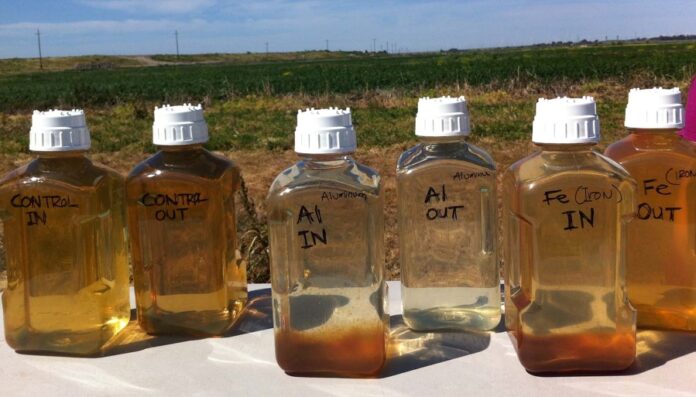A recent study by Murei, et al. (2024) titled “Selection of a diagnostic tool for microbial water quality monitoring and management of faecal contamination of water sources in rural communities” published in Science of the Total Environment, shows that the hydrogen sulphide (H2S) test and sanitary inspections are cost-effective and suitable tools for monitoring faecal contamination in rural areas at the household level.
“
Hydrogen sulphide tests and sanitary inspections are cost-effective tools for monitoring faecal contamination in rural water sources.– Murei, et al. 2024
The article, titled “Selection of a Diagnostic Tool for Microbial Water Quality Monitoring and Management of Faecal Contamination of Water Sources in Rural Communities,” focuses on assessing and selecting effective tools for microbial water quality monitoring in rural settings. Conducted by researchers from Tshwane University of Technology and the University of South Africa, the study explores various methods to monitor water quality at multiple levels. These include sanitary inspections, hydrogen sulphide (H₂S) tests, the enumeration of faecal indicator bacteria, and advanced molecular techniques like qPCR for detecting host-associated genetic markers and pathogens.
How the Study was Conducted
The study employed a multi-faceted methodology. Authors from the Tshwane University of Technology and the University of South Africa conducted a comprehensive evaluation of various microbial water quality monitoring tools. The authors utilized methods such as sanitary inspections, hydrogen sulphide (H2S) tests, enumeration of faecal indicator bacteria, and advanced molecular techniques like qPCR for detecting host-associated genetic markers and pathogens. This approach allowed the authors to assess the effectiveness and suitability of different tools for monitoring faecal contamination in rural areas at the household level.
What the Authors Found
The authors found that the hydrogen sulphide (H2S) test and sanitary inspections are cost-effective and suitable tools for monitoring faecal contamination in rural areas at the household level.
Why is this important?
Health and Safety: Monitoring and managing faecal contamination in water sources is crucial for preventing waterborne diseases, which can have severe health impacts, especially in rural areas.
Cost-Effective Solutions: The study identifies cost-effective tools like the hydrogen sulphide (H2S) test and sanitary inspections, which are accessible and practical for rural communities.
Advanced Techniques: By incorporating advanced molecular techniques like qPCR, the study provides a comprehensive approach to water quality monitoring, ensuring more accurate and reliable results.
Empowering Communities: Providing rural communities with effective tools and knowledge for water quality monitoring empowers them to take control of their water resources and improve their overall quality of life.
Sustainable Development: Ensuring access to clean water is a fundamental aspect of sustainable development, contributing to better health, economic growth, and environmental sustainability.
What the Authors Recommended
- The authors advocates implementing affordable and practical tools like the hydrogen sulphide (H2S) test and sanitary inspections for routine monitoring.
- Utilizing advanced molecular techniques such as qPCR for detecting host-associated genetic markers and pathogens to complement traditional methods.
- The authors suggest that the government should engage local communities in the monitoring process to ensure they understand and can act on the results.
- Furthermore, the study advocates providing training and resources to local stakeholders to build technical expertise and ensure the sustainability of monitoring efforts and combining simple, cost-effective methods with advanced techniques to create a comprehensive monitoring strategy.
In conclusion, the study by Murei et al. provides a valuable framework for addressing microbial water contamination in rural communities through cost-effective, accessible, and scientifically robust methods. By highlighting the practicality of the hydrogen sulphide (H₂S) test and sanitary inspections, alongside advanced molecular techniques like qPCR, this research empowers local communities to take proactive steps in safeguarding their water sources. The recommendations for government and stakeholder engagement underscore the importance of community involvement and sustainable practices, which are essential for lasting improvements in water quality management. This study ultimately contributes to the broader goal of enhancing public health, fostering community resilience, and supporting sustainable development initiatives in rural areas.
















 The African Research (AR) Index is a comprehensive scholarly directory and database focused explicitly on journal publishers that publish and disseminate African research.
The African Research (AR) Index is a comprehensive scholarly directory and database focused explicitly on journal publishers that publish and disseminate African research.

